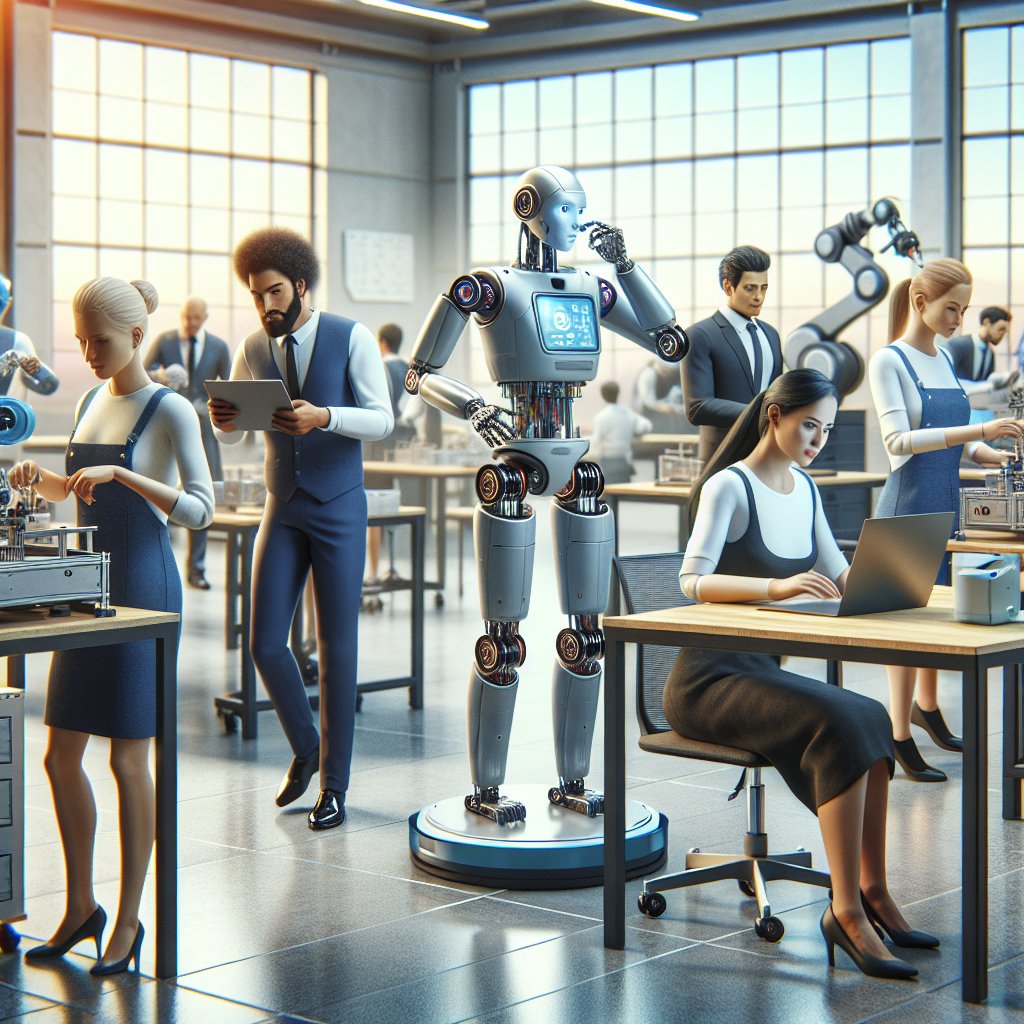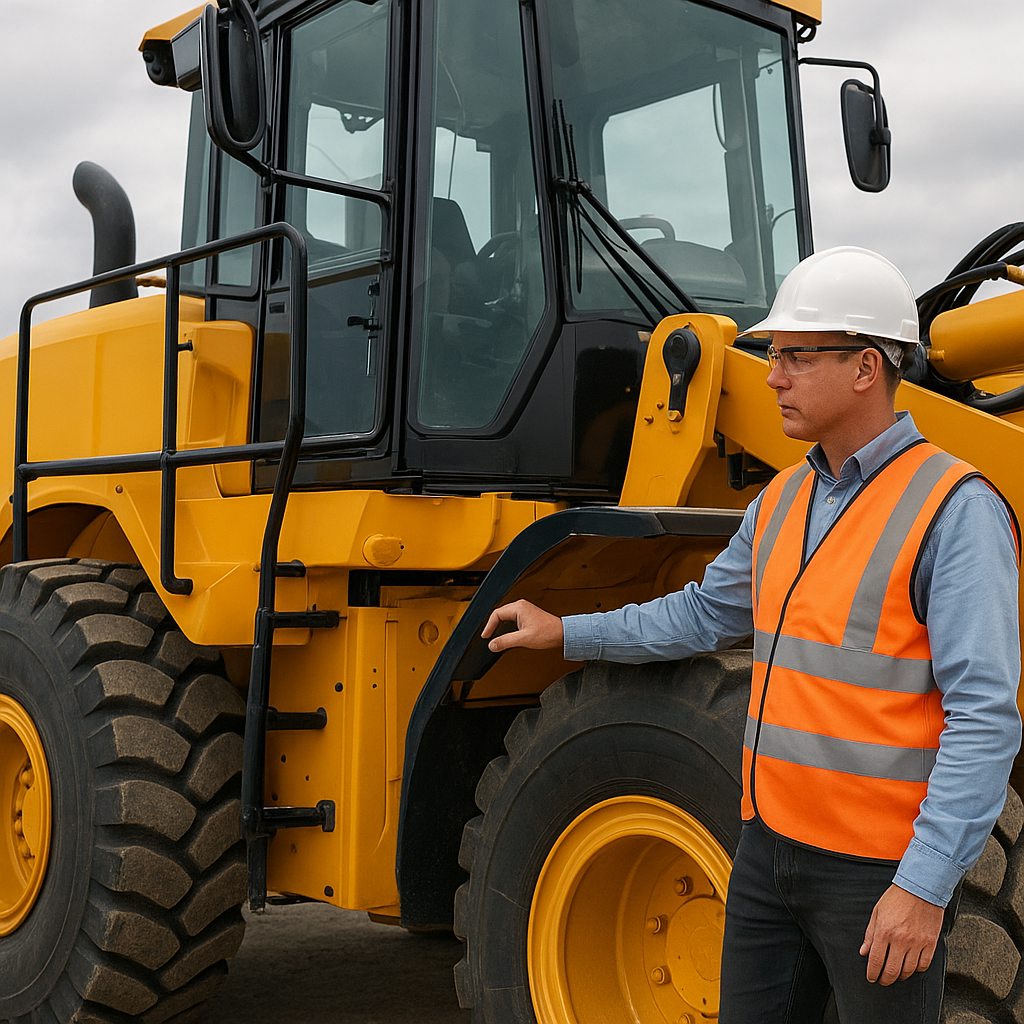
Collaborative robots, often referred to as cobots, are revolutionizing the landscape of small and medium enterprises (SMEs) by offering a flexible, efficient, and cost-effective solution to automation. Unlike traditional industrial robots, cobots are designed to work alongside human workers, enhancing productivity and safety in various industries. This article delves into the myriad benefits that cobots bring to SMEs, exploring how they can transform operations and drive growth.
Understanding Collaborative Robots
Collaborative robots are a subset of industrial robots that are engineered to work in close proximity to humans. They are equipped with advanced sensors, software, and end-effectors that allow them to perform tasks with precision and adaptability. Cobots are designed to be user-friendly, often requiring minimal programming skills, which makes them accessible to businesses of all sizes.
One of the key features of cobots is their ability to operate safely alongside human workers. They are equipped with sensors that detect human presence and can adjust their speed or stop entirely to prevent accidents. This safety feature is crucial for SMEs that may not have the resources to implement extensive safety measures required for traditional robots.
Enhancing Productivity and Efficiency
For SMEs, productivity and efficiency are critical factors that determine success. Cobots can significantly enhance these aspects by taking over repetitive and mundane tasks, allowing human workers to focus on more complex and creative activities. This not only boosts overall productivity but also improves job satisfaction among employees.
Moreover, cobots can work tirelessly without breaks, ensuring consistent output and reducing downtime. This is particularly beneficial for SMEs that operate in industries with high demand and tight deadlines. By integrating cobots into their operations, businesses can achieve faster turnaround times and meet customer expectations more effectively.
Cost-Effectiveness and Return on Investment
One of the most compelling reasons for SMEs to adopt cobots is their cost-effectiveness. Unlike traditional robots, which often require significant upfront investment and ongoing maintenance costs, cobots are relatively affordable and easy to maintain. They are designed to be plug-and-play, meaning they can be quickly deployed and reprogrammed for different tasks without the need for specialized technicians.
The return on investment (ROI) for cobots is typically high, as they can quickly offset their initial cost through increased productivity and reduced labor expenses. For SMEs operating on tight budgets, this makes cobots an attractive option for automation.
Flexibility and Scalability
SMEs often face fluctuating demands and need to be agile in their operations. Cobots offer the flexibility to adapt to changing production needs, as they can be easily reprogrammed and redeployed for different tasks. This adaptability is crucial for businesses that need to scale their operations up or down based on market conditions.
Additionally, cobots can be integrated into existing workflows without the need for extensive modifications to the production line. This makes them an ideal solution for SMEs looking to enhance their capabilities without disrupting their current processes.
Improving Quality and Consistency
Quality control is a significant concern for SMEs, as maintaining high standards is essential for customer satisfaction and brand reputation. Cobots can help improve the quality and consistency of products by performing tasks with precision and accuracy. They can handle delicate and intricate operations that may be challenging for human workers, reducing the risk of errors and defects.
By ensuring consistent quality, cobots enable SMEs to build trust with their customers and gain a competitive edge in the market. This is particularly important in industries where precision and reliability are paramount.
Enhancing Workplace Safety
Workplace safety is a top priority for any business, and SMEs are no exception. Cobots contribute to a safer working environment by taking over hazardous tasks that pose risks to human workers. This includes handling heavy materials, working in extreme temperatures, or performing repetitive motions that can lead to injuries.
By reducing the likelihood of workplace accidents, cobots help SMEs comply with safety regulations and avoid costly penalties. They also contribute to a healthier and more satisfied workforce, as employees are less likely to experience work-related injuries.
Conclusion
Collaborative robots are transforming the way small and medium enterprises operate, offering a range of benefits that enhance productivity, efficiency, and safety. By integrating cobots into their operations, SMEs can achieve significant cost savings, improve product quality, and create a more agile and responsive business model. As technology continues to advance, the role of cobots in SMEs is likely to grow, paving the way for a more automated and efficient future.

